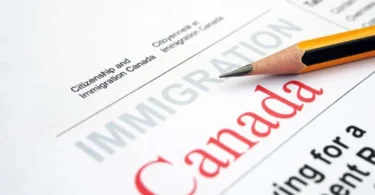Planning a trip to the United States? Get ready for significant difficulties. As of June 2025, foreign candidates seeking United States visas are experiencing unprecedented delays, with appointment wait periods exceeding 12 months in many regions.
Adding to the problem are stringent rescheduling guidelines, which make the visa acquisition process more difficult for tourists, business travelers, and students as well.
Table of Contents
Present United States Visa Appointment Wait Periods
Travel agencies and sector insiders are extending contracts for periods exceeding 12 months in certain regions, with rescheduling currently being more challenging. The wait periods for United States B1/B2 (business and tourist) visa appointments differ hugely across major foreign cities.
These prolonged delays are added to elevated request and processing backlogs.
Wait Periods For Student Visas
While student (F, M, J) and petition-based work visas (H, Q, L, O, P) commonly indicate shorter wait periods, typically ranging from 1.5 to 3 months, depending on the consulate, the total picture for general visitor visas remains grim.
Most countries have even accounted for wait periods extending up to 1 year, with spaces available into late 2026. This actual reality implies that making plans for your United States travel far in advance is not only a suggestion but also mandatory.
New Rescheduling Guidelines Effective 2025
To address the growing backlog, the United States embassy has implemented new rescheduling policies. These standards aim to reduce no-shows and optimize appointment availability for all candidates.
- One-Time Free Reschedule
Candidates are currently permitted to reschedule their United States visa appointment only once without incurring an additional visa charge. This applies to all classifications, including B1/B2, student, and job visas.
- Subsequent Reschedules Need A New Visa Fee
If you wish to modify your appointment again, you are required to reimburse the full visa charge. The cap of two free reschedules has been removed as of January 2025.
If you enjoy this article, don't miss out on the valuable insights and information available in our other related posts:
- Skipped Appointments Result In A 120-Day Prohibition
If you skip or miss your visa interview or interview-waiver spot without revoking on time, you will be blocked from scheduling another appointment for 120 days from the actual date.
Hints To Navigate US Visa Delays
- Make An Application As Early As Possible
Due to the extended wait times at several United States consulates and embassies, begin your request process at least 8 to 12 months before your planned travel date.
- Check Wait Periods Frequently
Visa wait durations are modified often. Review the United States State Department webpage or consulate portals regularly to stay informed about early openings or revocations.
- Prevent Skipping Your Appointment
Failing to attend your booked interview without prior notice will result in a 120-day ban on scheduling a new one. Set reminders and recheck your booked date.
- Rebook Wisely
You now get just one free rebooking. Ensure the new date is ideal for you, as another modification will require repayment of the visa charge.
- Get Ready To Complete The Documentation
Double-check that all forms, pictures, and accompanying documents comply with the United States visa requirements. Incomplete requests can result in refusal or delays.
- Get Prepared For Detailed Interviews
Officials are conducting more detailed interviews, primarily with first-time guests and students. Rehearse your answers, remaining truthful and confident.
- Consider Interview-Waiver Qualification
If you are renewing a visa in the same class, you may be eligible for the Dropbox choice. This can save time and prevent the need for in-person interviews.
In conclusion, with visa wait periods extending into months and stringent laws now in place, foreign travelers are required to plan in advance and adequately. Whether you are a student, tourist, or business traveler, being aware of the new rescheduling guidelines and staying informed about consular updates will help you avoid last-minute surprises and expensive delays.





